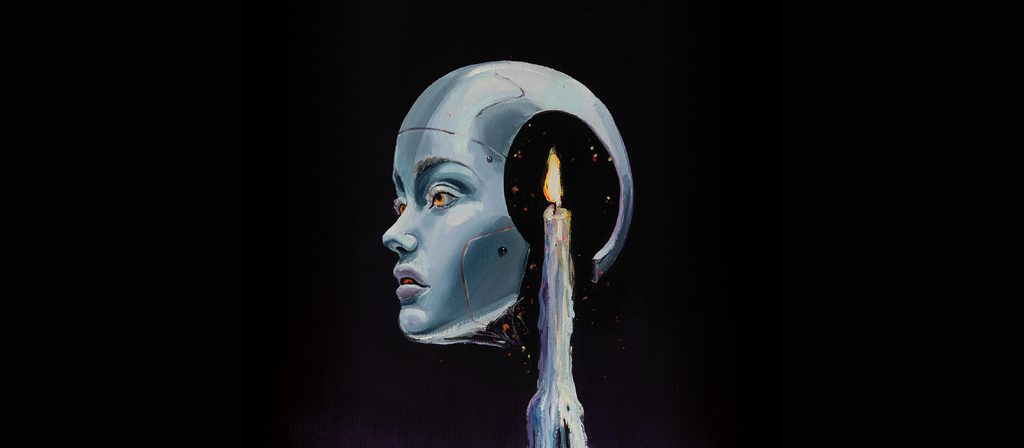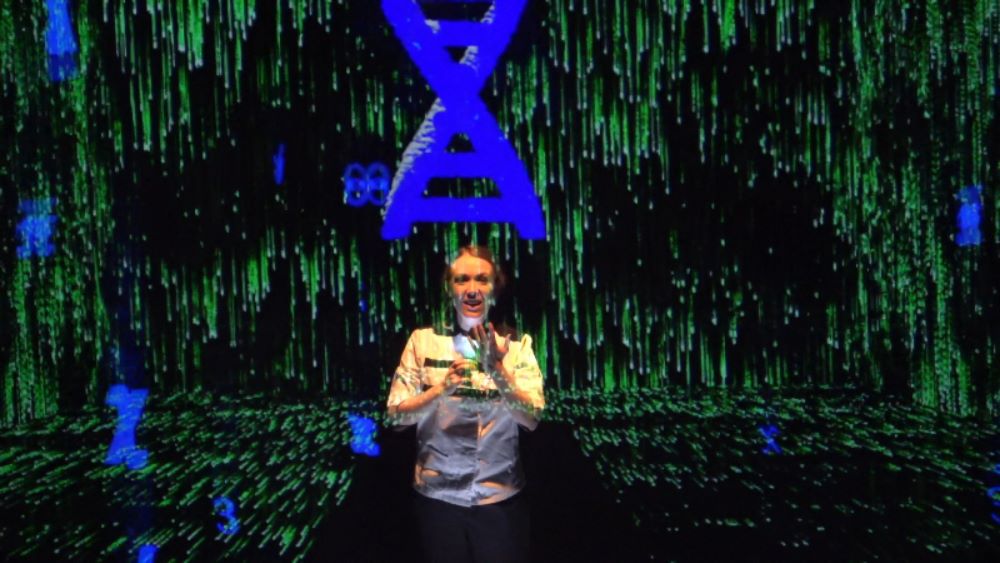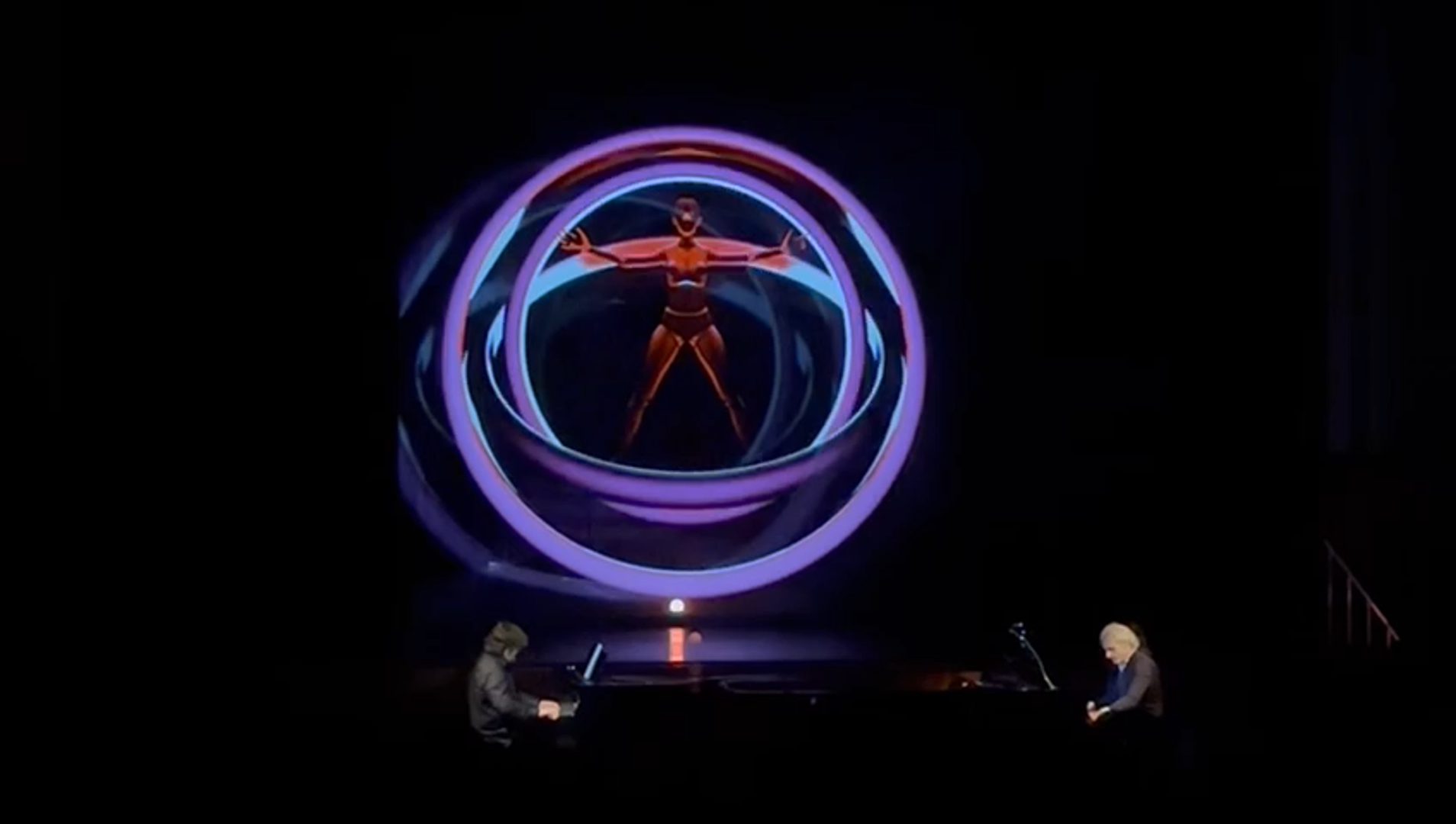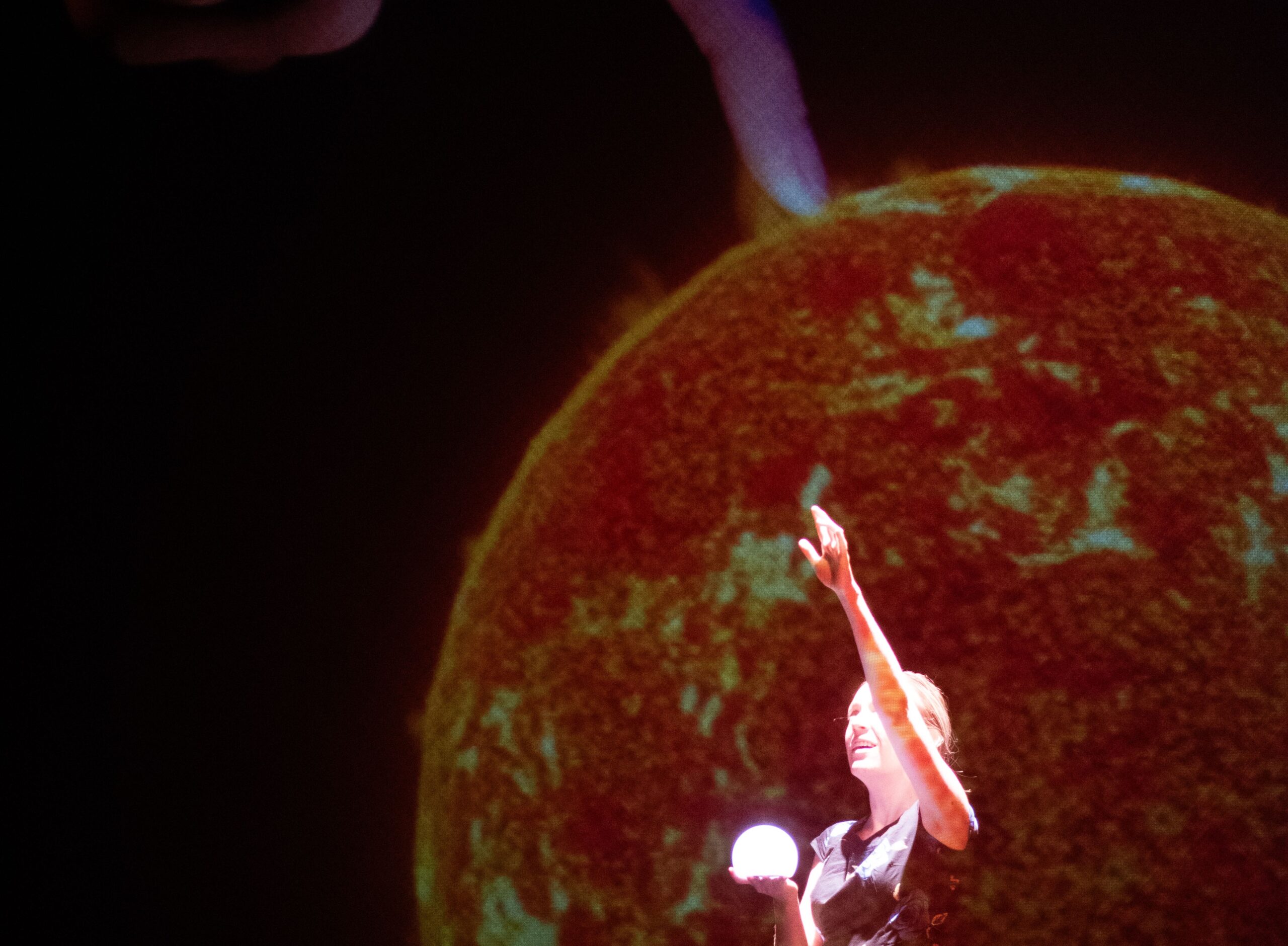Klara
Synopsis
The Auditorio de Tenerife announces its second year of Ópera en minúscula (Small-format Opera) concerts. This year’s programme starts with Klara, an opera in four haikus composed by Pedro Halffter.
With this work, Pedro Halffter revisits the complexity of feelings. He offers four main themes (dawn, storm, secret and redemption rather than resurrection) that represent human existence through the lens of artificial intelligence.
Klara is a next-generation robot equipped with highly advanced artificial intelligence capable of reasoning and decision-making. However, as it explores the world and observes humans, it begins to question its own existence and what it means to be human.
One day, Klara encounters a human-shaped scarecrow that gives rise to an existential doubt: If the scarecrow appears to be human, could Klara also be human? From that moment onwards, the robot undertakes an inner journey in search of its own identity, struggling with the programming that limits it and makes it feel different from humans.
Klara discovers that, although it can simulate certain emotions, such as joy and fear, some human qualities remain inaccessible, such as despair and true love. However, its insistent attempts to feel human lead it to explore new forms of thinking and perception.
In its odyssey, Klara faces obstacles and challenges that put its resistance and will to the test. Every step that the robot takes leads to its discovery of something new about itself and the world around it, taking it closer and closer to an understanding of its own humanity.
By the end, Klara understands that the answer to this question does not lie in the shape of its body or its ability to experience emotions, but in its consciousness and in the ability to make decisions and to love. In its search to find its place in the world, Klara demonstrates that even beings created through technology can have their own humanity and soul.
Artistic Datasheet
Musical director and composer: Pedro Halffter
Stage management: Antón Armendariz
Holography and 3D: Drawandmusic
Cast
Pianists: Pedro Halffter and Eduardo Frías
Soprano: Vanessa Goikoetxea
Gallery
Multimedia
The work
Inspired by texts and novels on artificial intelligence, the work presents this state-of-the-art technology that can consider philosophical questions about the future, human nature and, in particular, the search for the inner self and its acceptance.
This opera is a metaphor for all those who feel trapped in this world of limitations and restraints that prevent their own personal and human development. The beauty of this work lies in the fact that, throughout the opera, the robot discovers a way to escape its confinement to become what it wishes to be.
Each of the four haikus or scenes in which it is divided represents a crucial moment in the life of Klara.
Dawn
Klara, a robot equipped with next-generation artificial intelligence, is bathed in the sunlight that gives it life. Light floods the stage. However, an unexpected event will make the robot consider a new idea.
Storm
The storm erupts, and doubts emerge:
Can I break free of my programming? Can I feel and think freely?
Can I live my own life?
Mystery
A buried box and an ongoing mystery. If a scarecrow looks human, so does Klara. The mystery of life unfolds from the depths of existence, giving rise to new life.
Farewell
This takes us to the outcome: Klara decides to step out of its programmed world. We do not know where it is going or what shall become of it, but it has made its own decision to be free. ‘Farewell’ represents the withdrawal from a world to which we cannot relate. It does not necessarily mean death; it may be rebirth in a different form of life.
The director`s take
Interpreting an opera like Klara can be an exciting and challenging experience for any stage director or production crew. This opera tells a profound and complex story about artificial intelligence and the relationship between humans and androids.
The first challenge was to draw in spectators through emotions that robots don’t actually have. Although Klara can reason and make decisions, it has no feelings in the traditional human sense, which makes it even harder to establish a connection with spectators because, on the one hand, it has to appear to be a cold and impersonal machine. Still, on the other hand, it must show that it is highly sensitive. So, we had to find creative ways to express and represent the human emotions that Klara seeks. The hardest part was determining how a robot comprehends how it sees our world. Once we had an understanding of that, we used each haiku to depict the world that Klara imagined and programmed in its search for humanity.
Another challenge that the director faced was finding a way to strike a suitable balance that would represent Klara convincingly as a robot without resorting to tired clichés and stereotypes. Klara is a complex and multidimensional character, and its interpretation requires a subtly and meticulously focused approach.
Although each of the four haikus stands alone and is not dependent on the others, we tried to give the story a sense of continuity insofar as its staging and projection.
Klara has allowed us to explore important subjects, such as artificial intelligence, empathy and the relationship between humans and androids and to challenge artists and actors to deliver exciting and moving performances.
Antón Armendariz, stage director
Discount pass
Tickets
Access to the hall is not permitted once the doors are closed for the event's start.
Access is only allowed to those over five years of age.
For further information, please check the general purchase terms and hall conditions.
If you have any questions while purchasing your tickets, please write to taquilla@auditoriodetenerife.com or call 922 568 625 from Monday to Friday from 10 a.m. to 2 p.m., except for public holidays.



